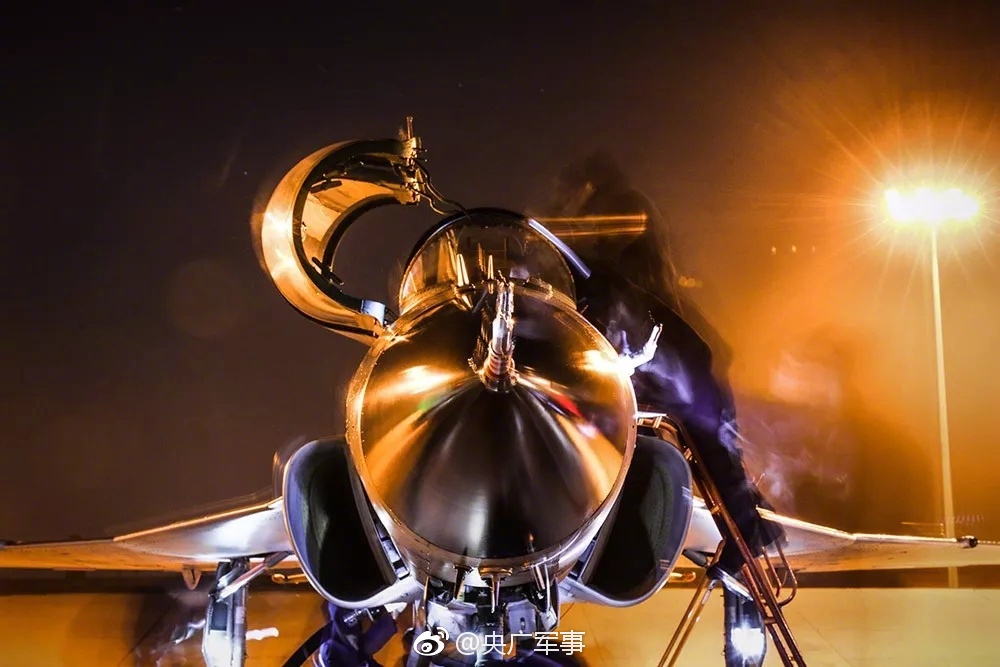
1. The main functions of the operating system: CPU management, storage management, file management, device management and operation management.
2. C [Analysis] The operating system should usually include the following five functional modules: (1) Processor management. When multiple programs run at the same time, solve the processor (CPU) time allocation problem. ( 2) Operation management. The program to complete an independent task and its required data constitute a task.
3. The five functions that computer operating systems usually have are CPU management, storage management, file management, equipment management and job management.
1. The five functions of the operating system are processor management, memory management, device management, file management and job management. Processor Management ProcessorThe most basic function of management is to handle interrupt events. After configuring the operating system, various events can be handled.
2. The main functions of the operating system: CPU management, storage management, file management, device management and operation management.
3. C [Analysis] The operating system should usually include the following five functional modules: (1) Processor management. When multiple programs run at the same time, solve the processor (CPU) time allocation problem. ( 2) Operation management. The program to complete an independent task and its required data constitute a task.
4. CPU management, storage management, file management, equipment management and operation management. According to the query Baidu Education, the five functions that computer operating systems usually have are ___.
The operating system has five functions: processor management: mainly controls and manages the work of the CPU. Storage management: mainly allocate and manage memory. Device management: mainly manage basic input and output devices. File management: responsible for the organization, storage, operation and protection of computer files.
C [Analysis] The operating system should usually include the following five functional modules: (1) Processor management. When multiple programs run at the same time, solve the processor (CPU) time allocation problem. ( 2) Operation management. The program to complete an independent task and its required data constitute a task.
CountThe five functions of computer operating systems are: processor management, memory management, device management, file management and job management. Processor management The most basic function of processor management is to process interrupt events. After configuring the operating system, various events can be processed.
The five functions that computer operating systems usually have are as follows: Processor management: When multiple programs are running at the same time, it solves the problem of processor time allocation. Homework management. Memory management: allocate storage space for each program and the data it uses, and ensure that they do not interfere with each other. Equipment management.
Computer operating systems usually have five functions, which are: Process management: Process management is responsible for managing multiple processes in the computer, including starting, stopping and scheduling the operation of processes.
CPU management, storage management, file management, equipment management and operation management. According to the query Baidu Education, the five functions that computer operating systems usually have are ___.

1. FuckThe five functions of the system are: processor management, memory management, equipment management, file management and operation management. Processor management: The most basic function of processor management is to handle interrupt events. The processor can only detect interrupt events and generate interrupts and cannot process them.
2. The five major functions of the operating system are processor management, memory management, device management, file management and job management. Processor management The most basic function of processor management is to process interrupt events. After configuring the operating system, various events can be processed.
3. The five major functions of the operating system include: process and processor management, operation management, storage management, equipment management and file management.
4. Five major functions of the operating system: process management, memory management, file system management, device management, user interface.Process management The operating system is responsible for managing the processes in the computer, including creating, terminating, scheduling and switching processes.
5. The function of the operating system is mainly reflected in the management of computer resources - microprocessor, memory, external equipment, files and tasks. The operating system sets this management function into the corresponding program management module, and each management module is responsible for a certain function. That is, the five functions of the operating system.
The functions of the computer operating system include: processor management, memory management, device management, file management, job management and other functional modules. Processor management. The most basic function of processor management is to handle interrupt events.The processor can only detect interrupt events and generate interrupts and cannot process them.
The characteristics of the batch processing operating system are: a. Users use computers offline. After the user submits the homework, he no longer deals with the computer until he gets the result. The task submission method can be directly submitted to the management operator of the computing center, or it can be submitted through the remote communication line.
The operating system has five functions: processor management: mainly controls and manages the work of the CPU. Storage management: mainly allocate and manage memory. Device management: mainly manage basic input and output devices. File management: responsible for the organization, storage, operation and protection of computer files.
The operating system mainly consists of 4 functions: managing computer system resources, controlling program execution, improving the human-computer interface and providing support for other software.Manage computer system resources. The resources in the computer system need to be managed and coordinated. The operating system must have this function to ensure fairness and efficiency.
The functions of the operating system include managing the hardware, software and data resources of the computer system, controlling the operation of programs, improving the human-computer interface, supporting other application software, etc.
The main functions of the operating system are: process management, whose work is mainly process scheduling. In the case of a single user and a single task, the processor is only monopolized by one user's task, and the work of process management is very simple.
Bingo Plus-APP, download it now, new users will receive a novice gift pack.
1. The main functions of the operating system: CPU management, storage management, file management, device management and operation management.
2. C [Analysis] The operating system should usually include the following five functional modules: (1) Processor management. When multiple programs run at the same time, solve the processor (CPU) time allocation problem. ( 2) Operation management. The program to complete an independent task and its required data constitute a task.
3. The five functions that computer operating systems usually have are CPU management, storage management, file management, equipment management and job management.
1. The five functions of the operating system are processor management, memory management, device management, file management and job management. Processor Management ProcessorThe most basic function of management is to handle interrupt events. After configuring the operating system, various events can be handled.
2. The main functions of the operating system: CPU management, storage management, file management, device management and operation management.
3. C [Analysis] The operating system should usually include the following five functional modules: (1) Processor management. When multiple programs run at the same time, solve the processor (CPU) time allocation problem. ( 2) Operation management. The program to complete an independent task and its required data constitute a task.
4. CPU management, storage management, file management, equipment management and operation management. According to the query Baidu Education, the five functions that computer operating systems usually have are ___.
The operating system has five functions: processor management: mainly controls and manages the work of the CPU. Storage management: mainly allocate and manage memory. Device management: mainly manage basic input and output devices. File management: responsible for the organization, storage, operation and protection of computer files.
C [Analysis] The operating system should usually include the following five functional modules: (1) Processor management. When multiple programs run at the same time, solve the processor (CPU) time allocation problem. ( 2) Operation management. The program to complete an independent task and its required data constitute a task.
CountThe five functions of computer operating systems are: processor management, memory management, device management, file management and job management. Processor management The most basic function of processor management is to process interrupt events. After configuring the operating system, various events can be processed.
The five functions that computer operating systems usually have are as follows: Processor management: When multiple programs are running at the same time, it solves the problem of processor time allocation. Homework management. Memory management: allocate storage space for each program and the data it uses, and ensure that they do not interfere with each other. Equipment management.
Computer operating systems usually have five functions, which are: Process management: Process management is responsible for managing multiple processes in the computer, including starting, stopping and scheduling the operation of processes.
CPU management, storage management, file management, equipment management and operation management. According to the query Baidu Education, the five functions that computer operating systems usually have are ___.

1. FuckThe five functions of the system are: processor management, memory management, equipment management, file management and operation management. Processor management: The most basic function of processor management is to handle interrupt events. The processor can only detect interrupt events and generate interrupts and cannot process them.
2. The five major functions of the operating system are processor management, memory management, device management, file management and job management. Processor management The most basic function of processor management is to process interrupt events. After configuring the operating system, various events can be processed.
3. The five major functions of the operating system include: process and processor management, operation management, storage management, equipment management and file management.
4. Five major functions of the operating system: process management, memory management, file system management, device management, user interface.Process management The operating system is responsible for managing the processes in the computer, including creating, terminating, scheduling and switching processes.
5. The function of the operating system is mainly reflected in the management of computer resources - microprocessor, memory, external equipment, files and tasks. The operating system sets this management function into the corresponding program management module, and each management module is responsible for a certain function. That is, the five functions of the operating system.
The functions of the computer operating system include: processor management, memory management, device management, file management, job management and other functional modules. Processor management. The most basic function of processor management is to handle interrupt events.The processor can only detect interrupt events and generate interrupts and cannot process them.
The characteristics of the batch processing operating system are: a. Users use computers offline. After the user submits the homework, he no longer deals with the computer until he gets the result. The task submission method can be directly submitted to the management operator of the computing center, or it can be submitted through the remote communication line.
The operating system has five functions: processor management: mainly controls and manages the work of the CPU. Storage management: mainly allocate and manage memory. Device management: mainly manage basic input and output devices. File management: responsible for the organization, storage, operation and protection of computer files.
The operating system mainly consists of 4 functions: managing computer system resources, controlling program execution, improving the human-computer interface and providing support for other software.Manage computer system resources. The resources in the computer system need to be managed and coordinated. The operating system must have this function to ensure fairness and efficiency.
The functions of the operating system include managing the hardware, software and data resources of the computer system, controlling the operation of programs, improving the human-computer interface, supporting other application software, etc.
The main functions of the operating system are: process management, whose work is mainly process scheduling. In the case of a single user and a single task, the processor is only monopolized by one user's task, and the work of process management is very simple.
 Casino Plus
Casino Plus
488.51MB
Check Hearthstone arena
Hearthstone arena
641.82MB
Check Casino free 100 no deposit
Casino free 100 no deposit
525.11MB
Check Hearthstone Wild Decks
Hearthstone Wild Decks
514.47MB
Check bingo plus update today Philippines
bingo plus update today Philippines
657.64MB
Check DigiPlus fair value
DigiPlus fair value
218.76MB
Check Casino Plus
Casino Plus
714.63MB
Check Hearthstone Arena Tier List
Hearthstone Arena Tier List
433.66MB
Check 100 free bonus casino no deposit GCash
100 free bonus casino no deposit GCash
626.14MB
Check TNT Sports
TNT Sports
821.43MB
Check UEFA Europa League
UEFA Europa League
272.28MB
Check Casino Plus
Casino Plus
695.49MB
Check UEFA live free
UEFA live free
848.31MB
Check DigiPlus stock
DigiPlus stock
822.95MB
Check Europa League app
Europa League app
855.35MB
Check UEFA Champions League live streaming app
UEFA Champions League live streaming app
227.47MB
Check Hearthstone arena class win rates reddit
Hearthstone arena class win rates reddit
198.35MB
Check Hearthstone Arena win rate
Hearthstone Arena win rate
397.13MB
Check bingo plus update today
bingo plus update today
766.28MB
Check Hearthstone arena class win rates reddit
Hearthstone arena class win rates reddit
987.94MB
Check Free sports events uefa champions league app android
Free sports events uefa champions league app android
618.83MB
Check UEFA Champions League standings
UEFA Champions League standings
915.92MB
Check Arena Plus login
Arena Plus login
994.13MB
Check UEFA European championship
UEFA European championship
174.76MB
Check bingo plus update today Philippines
bingo plus update today Philippines
369.41MB
Check Arena Plus login
Arena Plus login
325.28MB
Check Hearthstone Arena Tier List
Hearthstone Arena Tier List
216.21MB
Check UEFA EURO
UEFA EURO
856.83MB
Check Bingo Plus
Bingo Plus
112.79MB
Check Champions League
Champions League
387.82MB
Check Arena Plus login
Arena Plus login
534.11MB
Check casino plus free 100
casino plus free 100
716.76MB
Check UEFA EURO
UEFA EURO
821.79MB
Check UEFA Champions League
UEFA Champions League
628.29MB
Check UEFA European championship
UEFA European championship
178.74MB
Check Casino Plus
Casino Plus
975.61MB
Check
Scan to install
Bingo Plus to discover more
Netizen comments More
1396 Casino Plus free 100
2025-01-08 13:26 recommend
629 Hearthstone arena deck Builder
2025-01-08 13:25 recommend
2556 TNT Sports
2025-01-08 12:40 recommend
2492 UEFA Champions League live
2025-01-08 12:32 recommend
626 UEFA Champions League live
2025-01-08 12:10 recommend